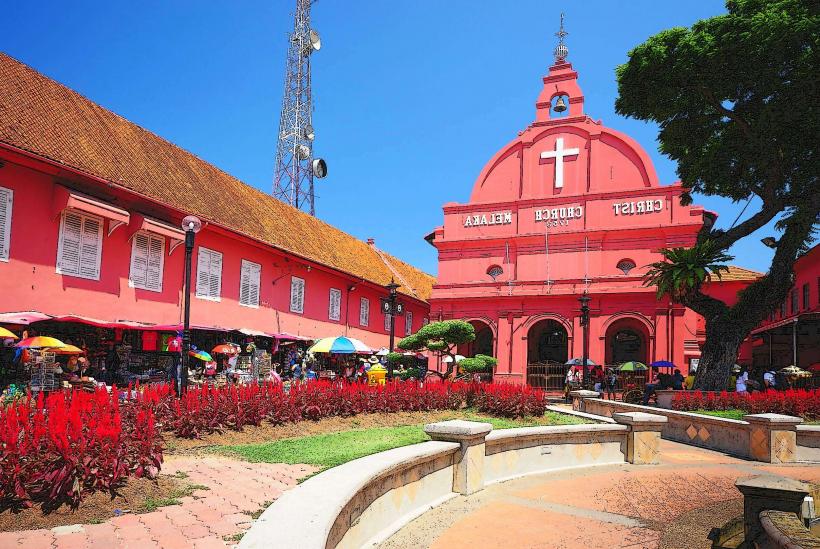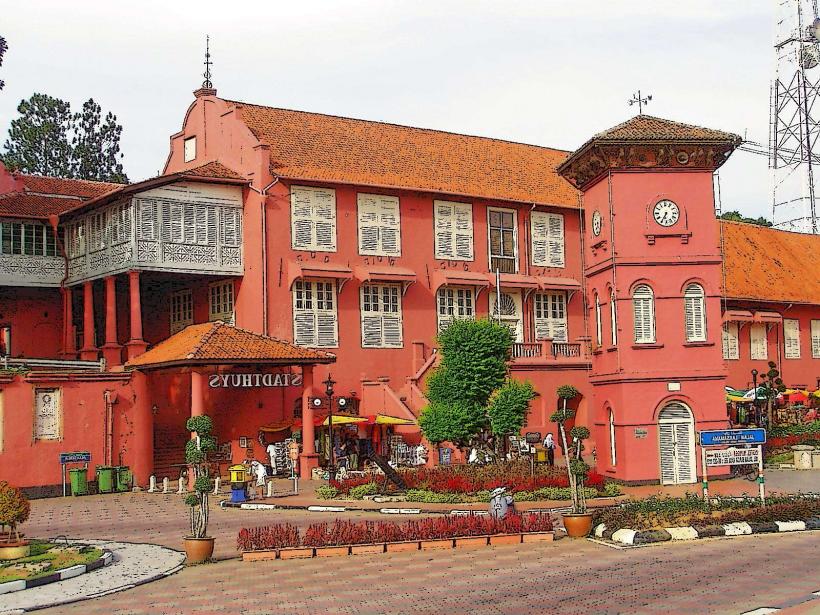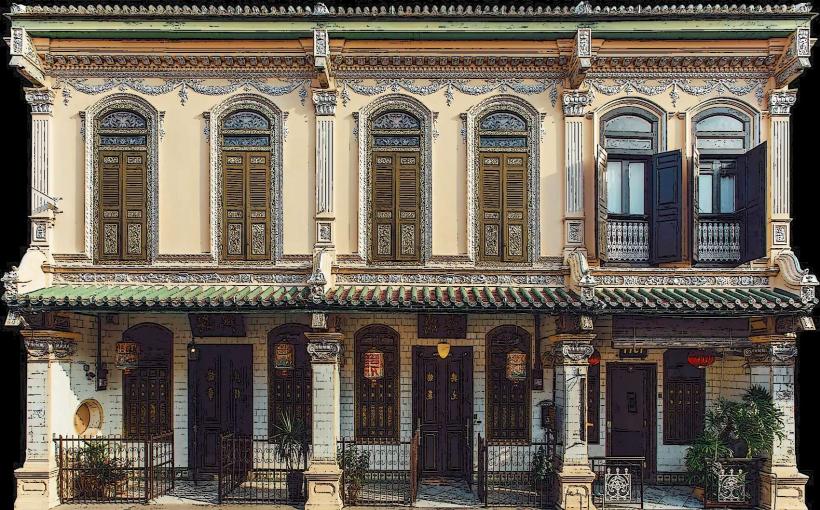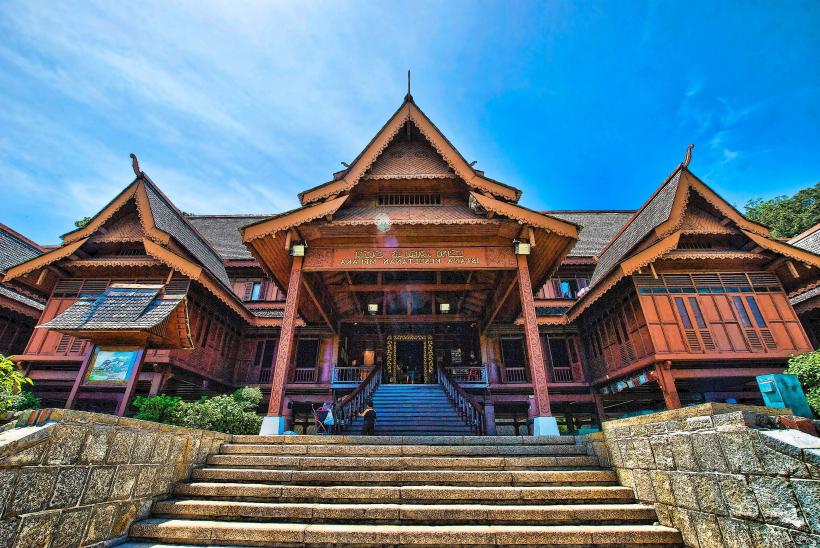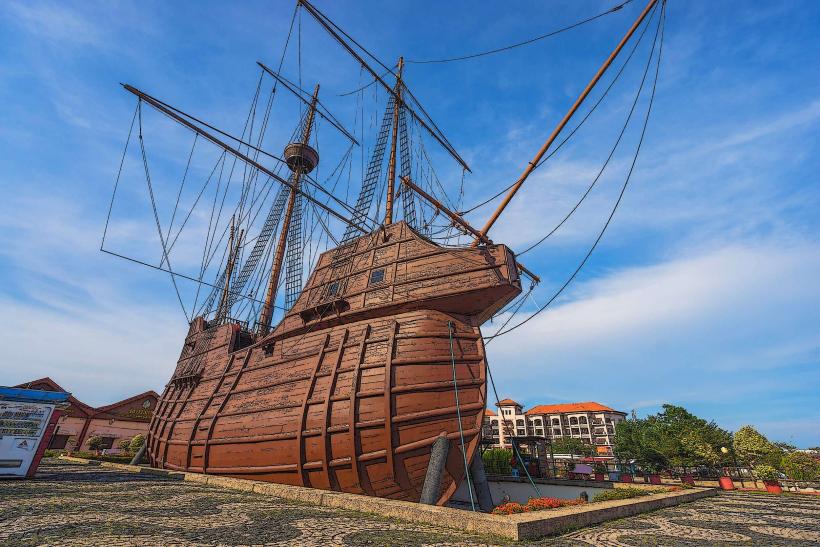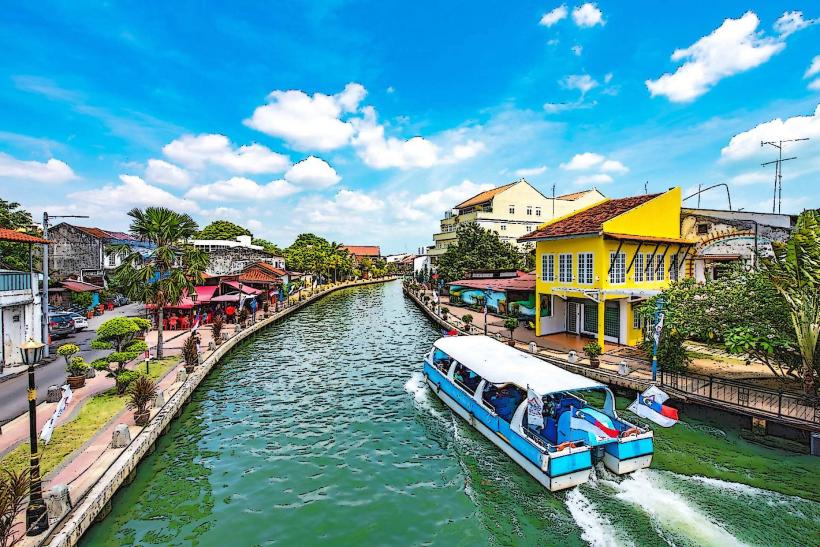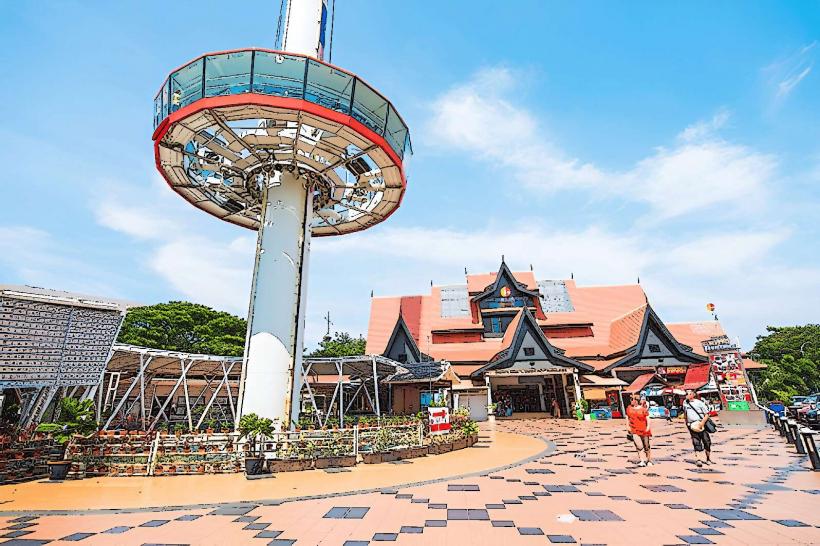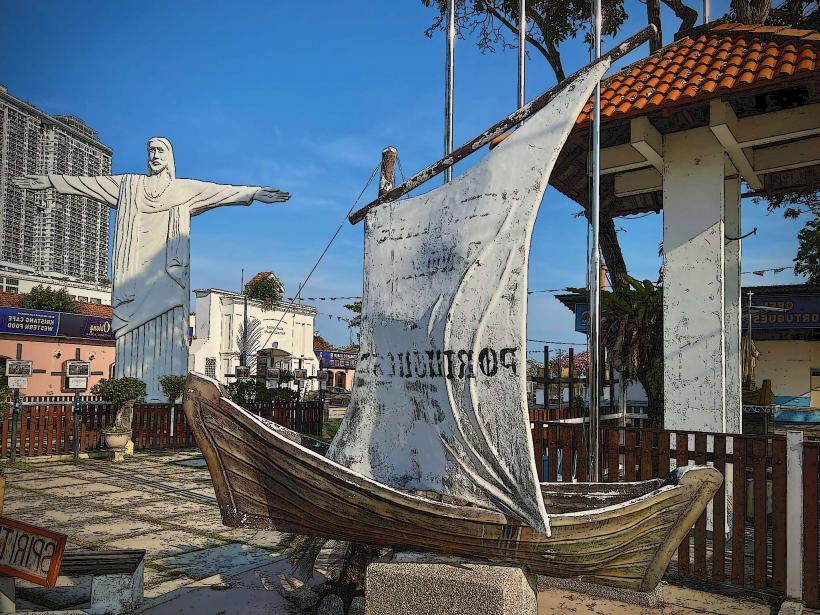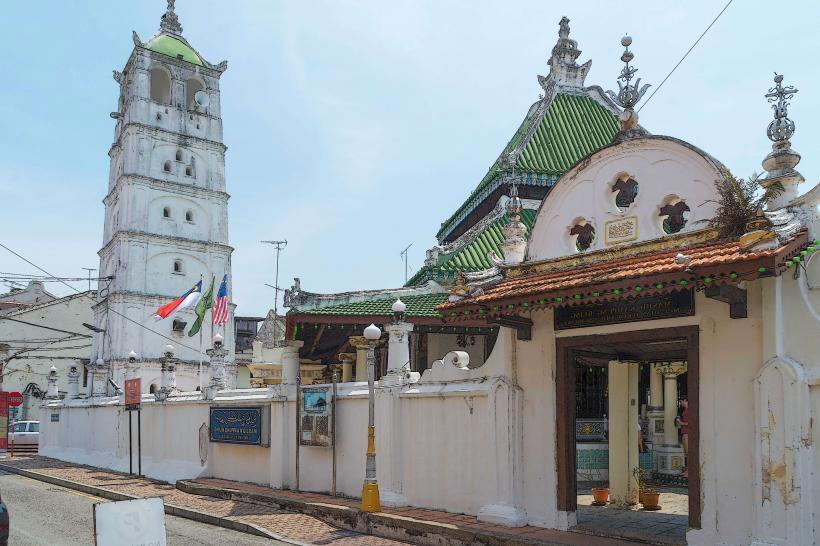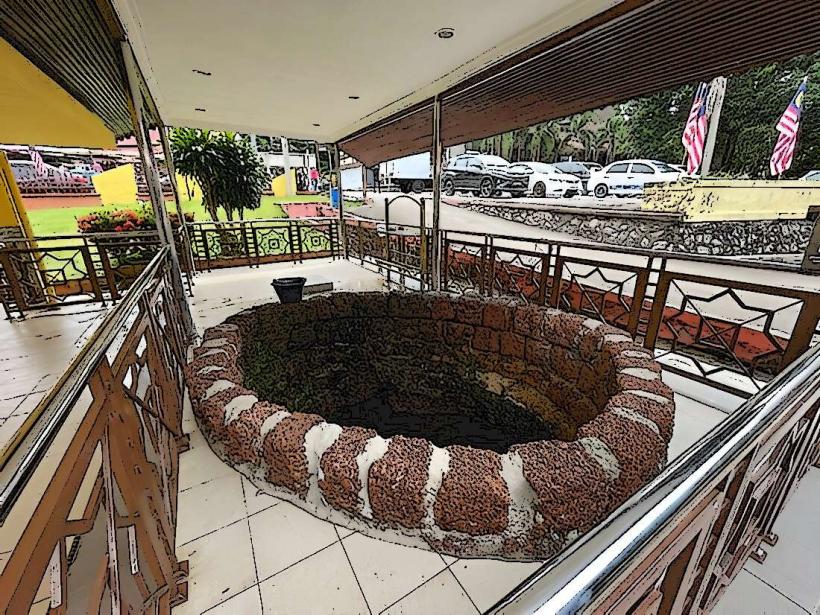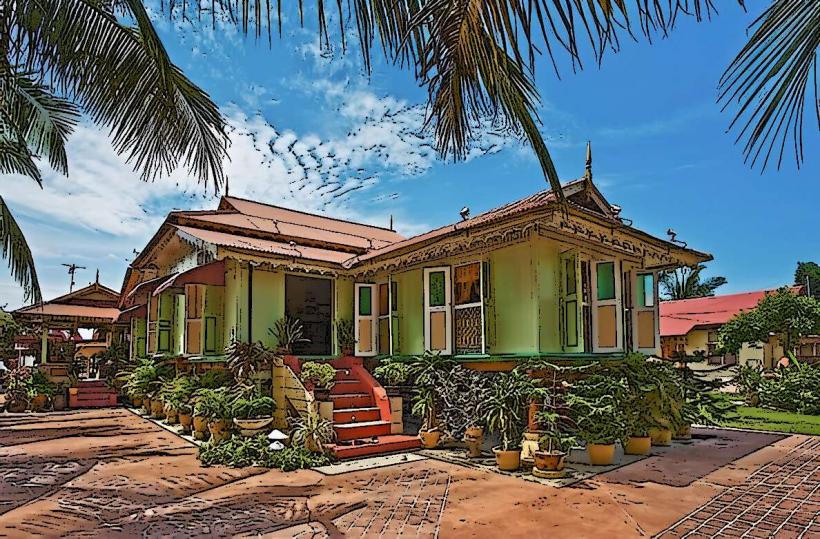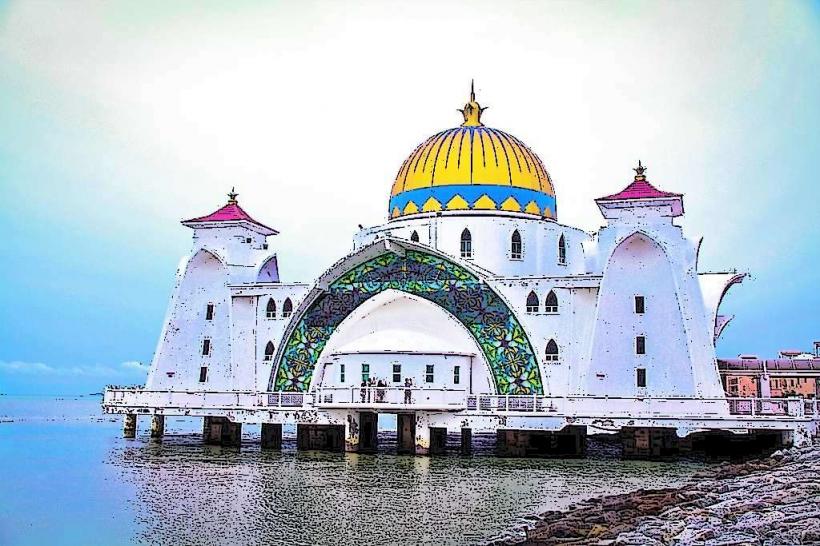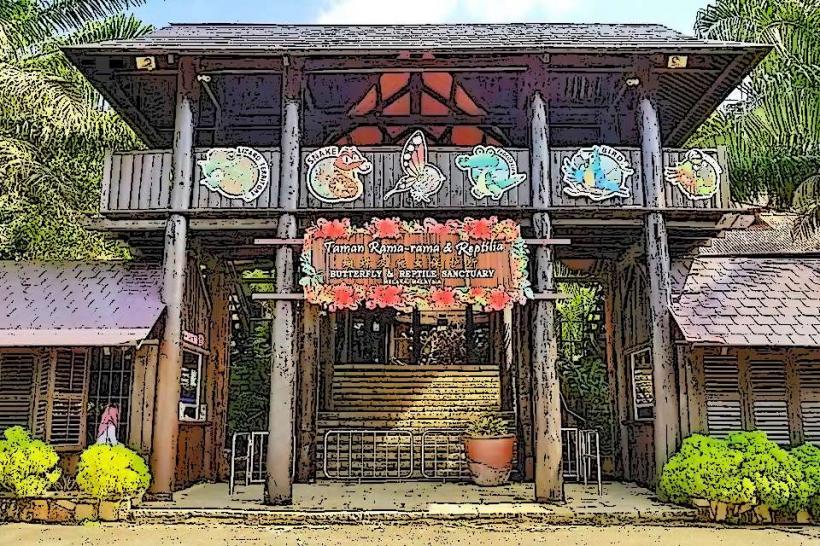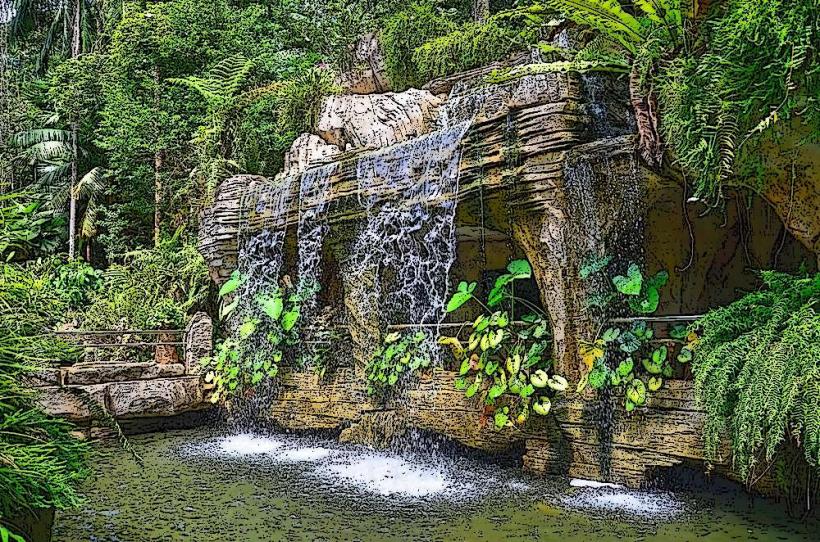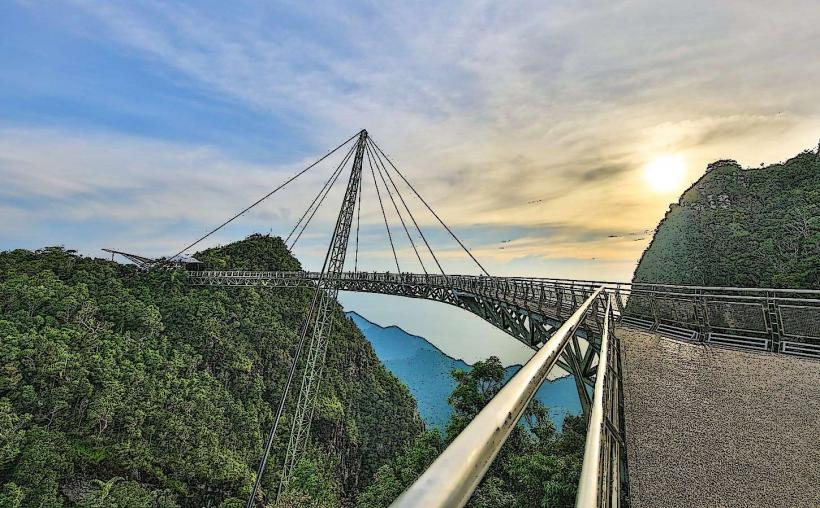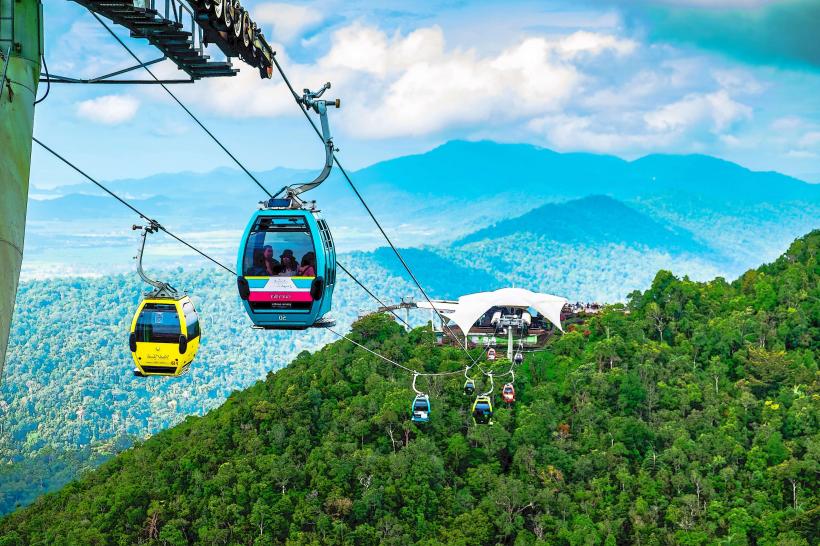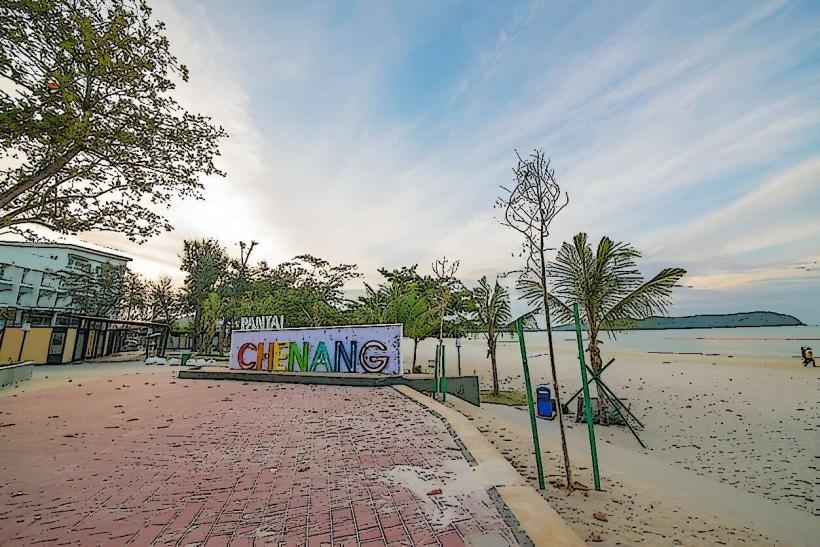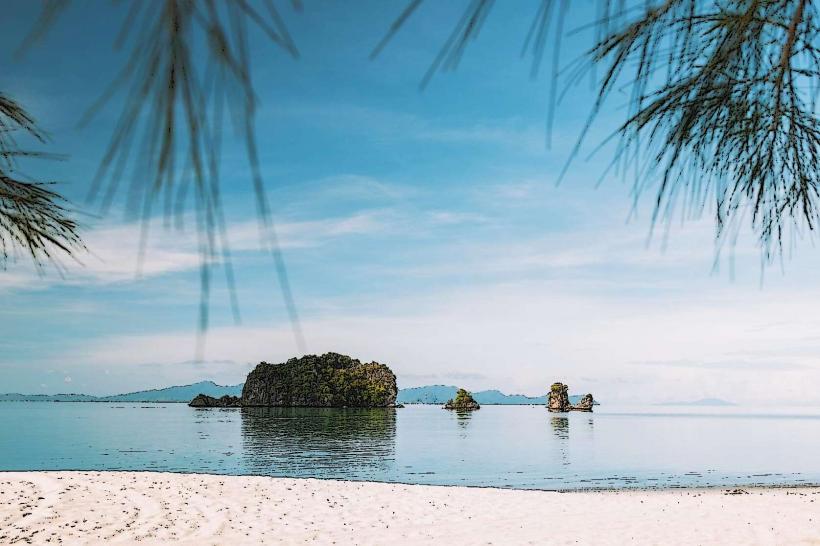Information
Landmark: Pulau Payar Marine ParkCity: Malacca
Country: Malaysia
Continent: Asia
Pulau Payar Marine Park, Malacca, Malaysia, Asia
Pulau Payar Marine Park is one of the most popular marine conservation areas in Malaysia, located approximately 30 kilometers south of Langkawi. It is renowned for its rich biodiversity, crystal-clear waters, and vibrant coral reefs, making it a top destination for snorkeling, diving, and eco-tourism. The park comprises several islands, with Pulau Payar being the largest and most developed for tourism activities.
Key Features of Pulau Payar Marine Park
1. Rich Marine Life
- Pulau Payar Marine Park is home to a diverse range of marine species, making it a popular spot for snorkeling and scuba diving. The park’s clear waters provide excellent visibility for exploring vibrant coral reefs and a variety of marine life, including:
- Colorful coral species such as hard corals, soft corals, and reef-building corals.
- Tropical fish like parrotfish, butterflyfish, damselfish, and clownfish.
- Sea turtles, stingrays, and small sharks can also be spotted, though they tend to stay at deeper depths.
- Invertebrates, including sea cucumbers, starfish, and octopuses.
2. Coral Reefs and Underwater Ecosystem
- The coral reefs in Pulau Payar Marine Park are considered to be some of the best-preserved in Malaysia, attracting both recreational divers and researchers. The reefs are home to abundant marine life, and the water is rich in nutrients, making it an excellent spot for underwater photography and eco-tourism.
- The park is also a designated Marine Protected Area (MPA), which ensures the sustainability of its coral ecosystems and helps in the conservation of marine species.
3. Snorkeling and Scuba Diving
- Pulau Payar Marine Park is a paradise for those interested in underwater activities. The shallow waters around the island offer fantastic snorkeling opportunities, allowing visitors to observe the stunning coral formations and marine life right from the surface.
- For scuba divers, the park offers a variety of dive sites at different depths, ranging from beginner-friendly areas near the shore to deeper waters that are ideal for more advanced divers.
- Diving trips and snorkeling excursions are available, with operators offering guided tours to ensure safety and provide educational information about the marine ecosystem.
4. Artificial Reef Project and Conservation Efforts
- The park has initiated an artificial reef project in collaboration with local and international organizations. This initiative involves the creation of man-made structures designed to foster the growth of coral reefs and provide habitats for marine species.
- The reef balls and artificial structures have successfully contributed to the regeneration of damaged reef areas, helping maintain biodiversity and supporting sustainable tourism.
5. Glass-bottom Boat Tours
- For visitors who prefer to stay dry, glass-bottom boat tours are available. These boats offer a unique opportunity to observe the marine life and coral reefs from above the water’s surface while enjoying the scenic views of the islands and coastline.
6. Beaches and Picnic Areas
- Pulau Payar itself features pristine white sandy beaches, making it an ideal location for relaxation. Visitors can enjoy a picnic on the beach, swim in the crystal-clear waters, or simply enjoy the stunning surroundings. Some beaches also have shaded areas where tourists can relax after a swim.
Visitor Information
Location:
- Pulau Payar Marine Park is situated off the southwestern coast of Langkawi, about 30 kilometers (18.6 miles) away from Langkawi's main island. The marine park is made up of four islands: Pulau Payar, Pulau Kaca, Pulau Segantang, and Pulau Lembu. The largest island, Pulau Payar, is where most of the tourism activities are centered.
Opening Hours:
- The park is generally accessible year-round, but the best time to visit is between November and April when the weather is calm, and visibility in the water is optimal. The park is closed during the monsoon season (approximately May to October).
Entry Fees:
- Entry to the park typically requires a fee, which covers access to the island and some facilities. The fees may vary, but a standard entry fee is around RM 5 for Malaysians and RM 30 for non-Malaysians.
- Additional fees apply for diving and snorkeling activities. Fees for diving trips or guided snorkeling tours may range from RM 100 to RM 250, depending on the type of tour and the operator.
How to Get There:
- Visitors can reach Pulau Payar by boat from Langkawi. Boat rides typically depart from Kuah Town or Pantai Cenang, with both half-day and full-day tours available. The boat ride to the island takes about 45 minutes to 1 hour.
- Private charters or group boat tours are also available, with several travel agencies offering packages that include snorkeling gear, diving lessons, or a picnic lunch on the island.
Best Time to Visit
- November to April: The best time to visit is during the dry season, from November to April, when the weather is more predictable, and the sea is calm, making for excellent snorkeling and diving conditions.
- The monsoon season from May to October can bring rough seas and heavy rains, making it less ideal for water activities.
Visitor Tips
- Sun Protection: If you plan to spend time snorkeling or sunbathing, be sure to bring sunblock, sunglasses, and a hat for protection from the tropical sun.
- Snorkeling Gear: While many tours provide snorkeling gear, it's a good idea to bring your own if you prefer to use familiar equipment or if you're prone to allergies with rented gear.
- Respect the Environment: As Pulau Payar is a marine park, it’s important to practice responsible tourism. Avoid touching or disturbing the coral reefs, and do not feed the fish. Help keep the environment pristine by disposing of trash properly.
- Health and Safety: If you’re planning to dive, ensure that you have the appropriate certification, as some areas require more advanced skills.
Nearby Attractions
- Langkawi Sky Bridge: This suspended bridge offers breathtaking views of the island's mountainous landscape and is located near Gunung Mat Cincang.
- Langkawi Wildlife Park: A family-friendly attraction where you can see various animals and interact with some of them.
- Pantai Cenang: One of Langkawi’s most famous beaches, offering water sports, dining, and entertainment options.
Pulau Payar Marine Park offers a perfect escape for nature lovers, marine enthusiasts, and those looking for adventure. With its rich marine life, stunning coral reefs, and beautiful island scenery, it is a must-visit destination for anyone exploring Langkawi.



